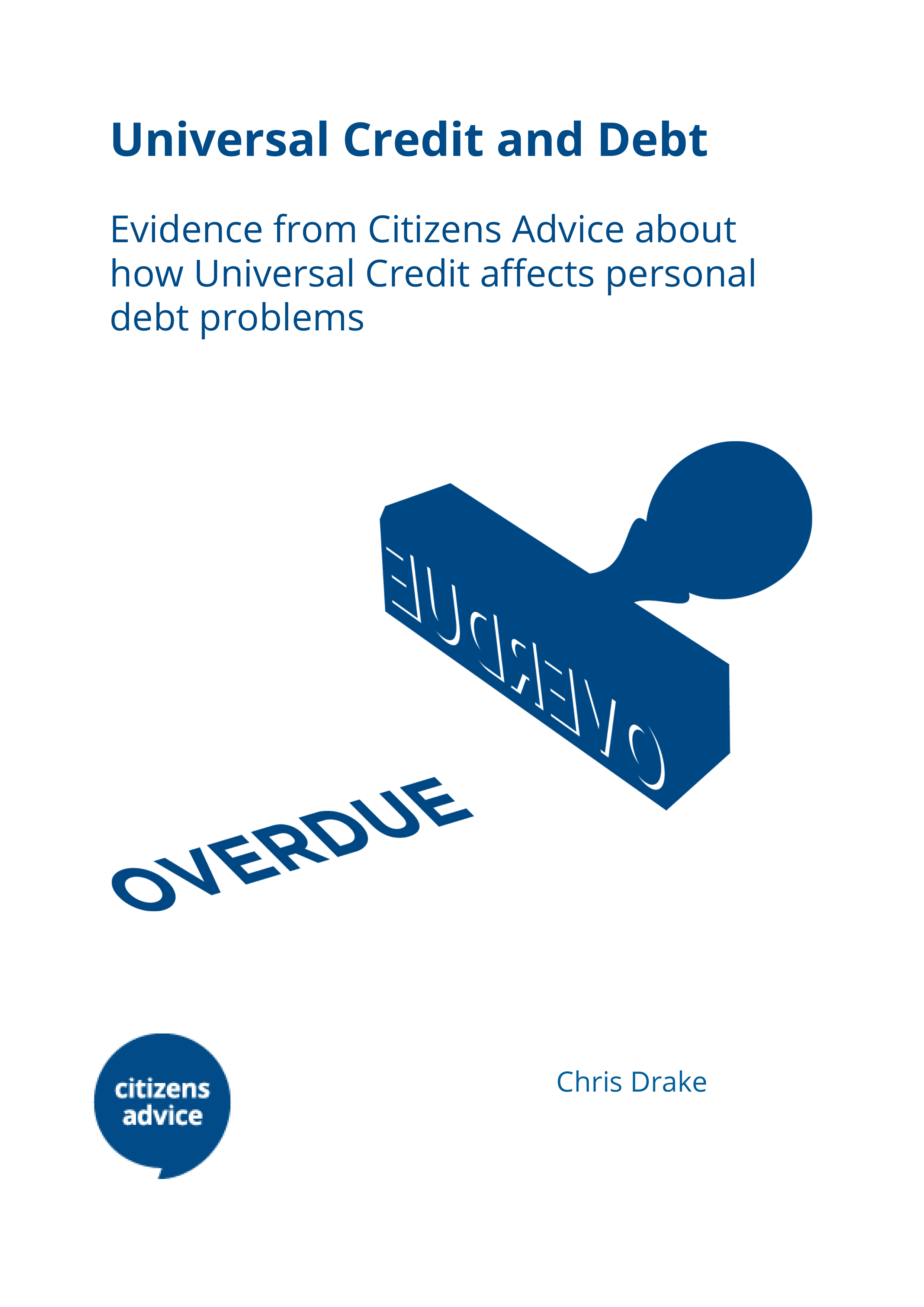Universal Credit and debt
Universal Credit needs to be paused now: Summary 86.4 KB
Universal Credit and Debt: Full report 1.02 MB
Universal Credit (UC) represents the biggest change to the welfare system undertaken since its inception. It brings together six different benefits into a single payment. By 2022, over 7 million families will be in receipt of this benefit - nearly 3 in 10 (28%) of all working-age households.

We support the aims of UC to simplify the benefits system, make transitions into work easier and make every hour of work pay. However to achieve these aims it is vital that it works well for all claimants.
Universal Credit and Debt 1.02 MB shows that some aspects of UC risk causing or exacerbating personal debt problems. With UC roll-out due to accelerate significantly from October 2017, identifying and tackling the problems new claimants are facing now - before problems become widespread - is necessary to ensure UC meets its aims.
Our evidence shows that our UC clients are more likely to have debt problems than those on legacy benefits. A quarter (26%) of the people we helped with UC also needed help with debt, compared to 19% for legacy benefits. They are also struggling to pay off their debts. More than 2 in 5 (41%) debt clients on UC have no spare income to pay creditors, compared to a third (33%) on legacy benefits.
We identified the following issues which are causing or exacerbating UC clients’ debt problems:
The 6 week waiting period.Lack of funds during the initial 6 weeks whilst claimants are awaiting their first regular UC payment can cause or exacerbate debt problems, particularly rent arrears.
Poor administration. Processing delays within DWP, and incorrect information provided to claimants is leading to delays in submitting and paying UC claims.
Difficulty budgeting. Some UC claimants find it difficult to adjust to monthly UC payments, particularly those in debt, or with fluctuating incomes.
Difficulty opening a suitable bank account to receive UC payments. UC claimants are required to have a suitable bank account to receive UC. Some are finding it difficult to open one, leading to delays in receiving their benefits.
Deductions from UC for benefit overpayments and other debts. UC claimants are experiencing financial difficulties due to the amount which can be deducted for other debts or overpayments, which is considerably higher than under legacy benefits.
This, alongside our recent evidence in Delivering Universal Credit 743 KB , demonstrates the need to improve the way UC is delivered and reduce the risk of UC causing or exacerbating debt problems. To do this, the Government should pause the roll out and fix the problems with Universal Credit so that:
No one is left waiting longer than 6 weeks for an income
Those who need it get a payment within 2 weeks that they do not need to pay back
People have access to a minimum standard of support to help them adapt to Universal Credit, which is published. This should, at a minimum, include.
a) Ensuring all UC claimants are made aware of, and can access budgeting support which is appropriate to their needs and;
b) Making funding available for free impartial debt advice to meet existing increases in demand as a result of Universal Credit.
In addition, the Financial Conduct Authority (FCA) should:
Amend its rules on assessing creditworthiness to require firms to develop policies on how they factor in income from Universal Credit in affordability assessments
Actively monitor the roll out of Universal Credit to see if it has an adverse impact on unauthorised lending, and consumer credit firms’ forbearance and debt collection practices
Develop guidance on how banks should keep their commitments under new legislation to provide basic bank accounts to unbanked UC claimants.
Acting on these recommendations, as well as those set out in our ‘ Delivering Universal Credit 743 KB ’ report, will help reduce the risk of UC claimants falling into debt or of UC exacerbating their existing debt problems.